After bananas and citrus, top fruit is the third-most eaten type of fruit in the world. That is what the World Apple and Pear Association (WAPA) proudly reports on its website. And in recent years, club varieties have been on the rise. With their attractive appearance and guaranteed quality, these are winning over more and more people.
A club markets these patented varieties and licensed growers cultivate and sell them. This prevents the market from becoming oversupplied. Not even the entire harvest may be sold under the brand name; only the very best fruit is deemed suitable for that.
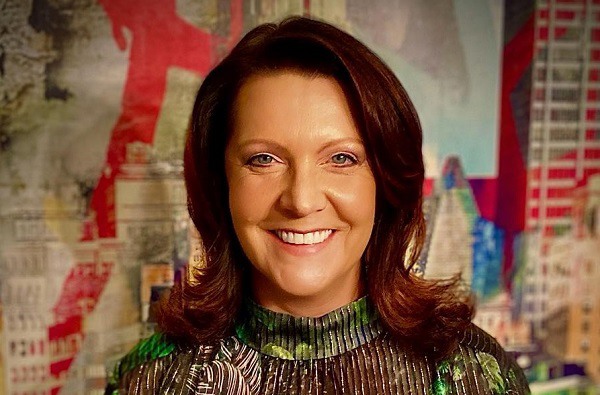
Ilse Hayen, EFC's CEO
Kanzi is a good example. The apple variety, actually called Nicoter. Kanzi, is managed by the European Fruit Cooperation (EFC), a Belgian variety management company. It was founded in 2002 when three grower organizations joined forces to market new varieties together. They were Fruitmasters (the Netherlands), Veiling Haspengouw (Belgium), and the German Württembergische Obstgenossenschaft (WOG).
EFC, a three-member club
Ilse Hayen, EFC’s CEO, says the partnership is holding up nicely. The almost 20 year old shareholders’ structure has remained unchanged, although BelOrta took Veiling Haspengouw’s place. That was when that cooperative went belly up a few years ago. "BelOrta was a logical choice. Many of Veiling Haspengouw’s growers, especially those who had planted Kanzi and Greenstar, joined BelOrta. Greenstar is EFC's second apple club variety. As a company, BelOrta’s vision has always matched ours, and still does,” Ilse begins.
“The shareholder’s transnational structure is unsurprising given their history. When it was formed, European subsidy policy favoured such collaboration over national partnerships. Growers had to evenly match every half euro of support from Europe with national collaborations. If you looked across borders to join forces, Europe provided 60 cents and growers only had to cough up 40."
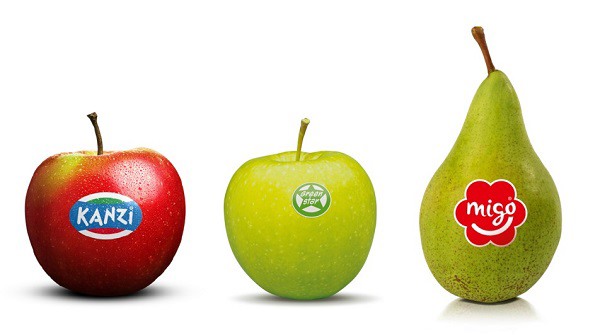
Kanzi is a bicolored, tart apple with a juicy, crisp bite. And it has become a fixture on store shelves. It is the second-largest apple club variety, second only to Pink Lady, a much older concept. "Retailers love Kanzi, like Pink Lady. That’s no mean feat because supermarkets can be quite reluctant when it comes to club varieties,” says Ilse, who worked at a retailer for ten years before joining EFC.
"Shoppers request them, and that’s something supermarkets can't ignore. Yet, nowadays, this product of many years of breeding, patience, trials, and tweaks is taken for granted. In the early years, there were a few issues, especially at the cultivation level. Kanzi, or more correctly Nicoter, is cancer-sensitive.“
Back then, no adequate solution had yet been found for this. So the rapid upscaling of cultivation with young trees was a little problematic. That was because these had been grown with certified material that wasn’t yet virus-free. Also, growers were used to Elstar and Jonagold, which are barely cancer-sensitive, if at all. However, we soon found a solution - the Golden intermediate strain. This method proved effective. And today, Nicoter trees are still delivered with this intermediate stem. This connecting piece between the rootstock and the Nicoter wood makes each piece of plant material half a euro pricier. Nonetheless, the long-term benefits - fighting off fruit tree cancer - far outweigh paying that initial extra cost.”
Better3fruit
EFC does not breed varieties itself; it leaves that to a large breeding program network. This includes universities across the globe. Nicoter, for example, is a Better3fruit product. This is a University of Leuven spinoff. It began a continuation of this Belgian university's breeding program. Tree breeder Johan Nicolaï was also involved. GKE is an EFC subsidiary that used to be a joint EFC/Johan Nicolaï venture. EFC recently remerged with GKE, for good reason. "As a variety management company, our mission is to create added value for all parties in the fruit supply chain,” explains Ilse.
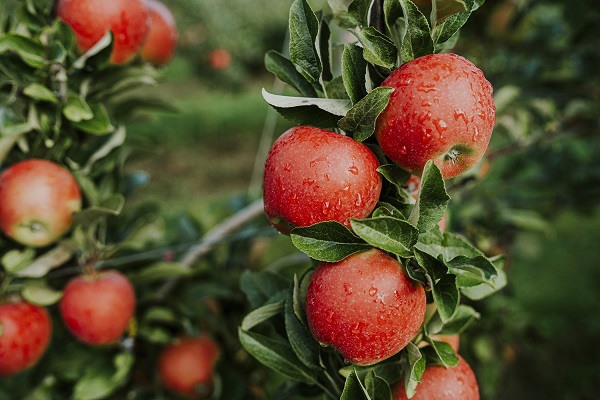
“We achieve this by continuously searching for and developing exceptional, unique varieties. And by building highly successful global brands. Growers can acquire a license to grow these. EFC used to focus on the first part of the chain. We optimized tree management and perfected cultivation. GKE managed the brands. In practice, EFC and GKE have always operated as a single team. This merger allows us to join forces in the areas of cultivation and marketing. We can now access and develop viable, successful varieties."
Global breeding programs
The top-selling Kanzi may be the fruit of Better3fruit’s research. However, when developing new varieties, EFC is not bound to this specific breeder. "Over the years, we’ve built a global network of breeding programs. We visit those annually, except, of course, during the pandemic. We’re not tied to Better3fruit, even though we’re one of their shareholders. When choosing a particular variety, EFC has to wait in line at Better3fruit just like any other party. We don't have a right of first refusal," says Hayen.
EFC also has good links with other breeding programs, such as Wageningen University in the Netherlands. But also in the US, including research institutes in Minnesota and Washington, as well as in New Zealand. Thanks to long-term relationships with EFC, those breeders have a clear picture of the variety management company’s criteria. If a potentially suitable variety emerges, EFC jumps on board, and the effective testing phase begins. And that work takes a considerable time.
“We’re currently testing some 17 red-skinned pear varieties. It takes four to five years before a young tree becomes productive. And before you can plant your chosen variety’s trees, you have to do trial runs. In the case of pears, this takes another two to three years. So the whole process takes between six and eight years. There’s a problem with the red-skinned pears currently on the market. They don’t remain nicely blushed and often tend to turn brown. Also, most have no blush at all. We cannot market those as a club concept. Or, technically put, the variety has a rather low packout value. Those are factors you certainly need to consider when deciding if you want to convert test licenses into commercial ones."
Growers keep an eye on packout
Packout is a fairly important aspect of concept varieties. As much when choosing a new one as with growers. Obviously, a potential new club variety with a high packout has an edge. Though, of course, the required percentage also depends on the price at which the premium product can be marketed. "Say that price is very high, and the packout is a little lower. Then that product can still be profitable. Naturally, the higher the packout, the better for the grower. But that's where growers differ considerably. That’s something our license partners provide in graphs at a growers' meetings. Then the past sales season is evaluated. This is done anonymously, of course. But it gives growers a good picture of how they and others are performing. The less good growers then know that they’ll have to work a little harder. But also that it pays off. Because quality brings in money," Ilse continues.
The baby brother
EFC has Kanzi and Greenstar apples and a pear club race - Migo - in its assortment. The ratio at the variety management company also reflects the broader reality. There are many more club varieties in apples than pears. And Ilse expects this to remain so. "There are, of course, fortunately, some pear club concepts like Migo, Xenia, and Sweet Sensation. But it is indeed much more limited. I think it will stay that way. Globally, pear cultivation is more limited than that of apples, anyway.”
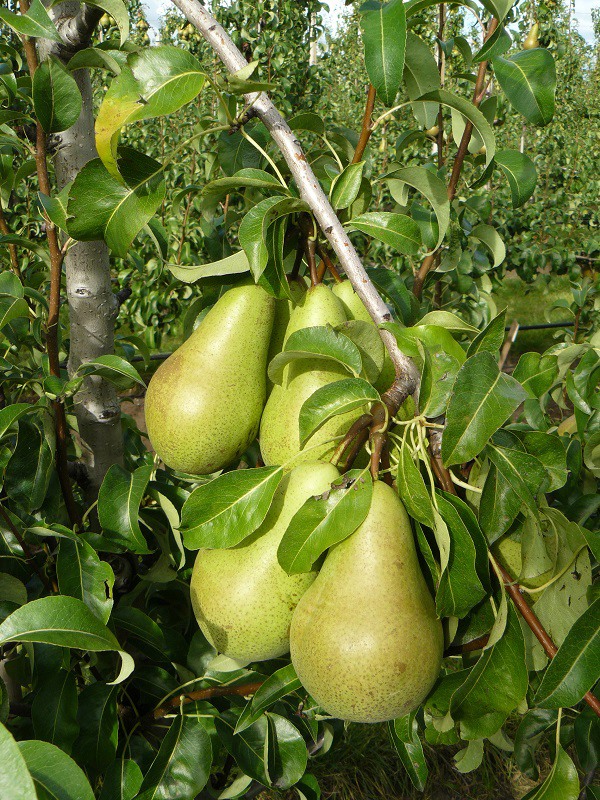
“And though pear consumption is generally declining, Migo is holding up nicely. Also, there are fewer good pear cultivation regions. I see room for red-skinned pears as a club variety; that’s what the trade wants. And should the common variety in our region, Conference, come under more pressure, that will certainly be an incentive to develop even more pear club concepts. In any case, apples will always stay ahead of pears in that area, in my opinion."
Breeding for the organic sector
For instance, when it comes to organic farming, Migo already has several advantages over Conference. Migo pears are less prone to roughening. Organic is becoming increasingly important in the modern context. And EFC, too, when looking for new varieties, is setting its sights on crops that can be grown sustainably. "When we find varieties in the breeding programs that are resistant to certain diseases, it's a huge plus. That’s because we have to farm more and more sustainably. And if the variety is naturally resistant to some disease, you don't have to resort to plant protection products. Then the road to organic is open," says Ilse.
Wild grown
For retailers, too, it is important to offer sustainably cultivated fruit. Then they can meet all their shoppers’ wishes. Besides organic, this could mean low or zero residue products and certainly locally grown fruit. But the demands of retail go further, of course. Aside from flavour characteristics - sweet, tart, and sweet-sour, syrupy-sweet - colour, too, plays a vital role. Kanzi is a bicolored apple, Greenstar - you guessed it - is green, or rather, bright green. Its flesh is white. Migo, too, is green. Retailers like to have an apple or a pear of each colour - red, yellow, and green - on their shelves.
"It’s then challenging, particularly with pears, to convince retailers to add a second green item to their assortment. There is, after all, limited shelf space. Retailers calculate their return per square meter. If that suddenly drops, fruits like bananas, citrus, or berries take the extra top fruit’s place."
It sometimes seems stores do not display a variety but rather a product characteristic as a distinguishing feature. That happened with potatoes. With these, it is the cooking type; with top fruit, it could be the colour or flavour. This is especially possible if there were to be a proliferation in the supply of free and club varieties.
“But we aren’t there yet. For now, Kanzi is holding its own excellently in the supermarkets. I'm also considering the upcoming oversupply of club varieties with interest. But the ultimate question is which ones are going to remain? And which ones are going to fall by the wayside?" the CEO asks. Red-fleshed apples are an example of a new trend. "We certainly follow developments closely. And if new varieties come along, we keep an eye on them. But currently there are no red-fleshed apples that seem interesting enough to us to get into. That’s not to say our shareholders can't get involved individually if they want to. Still, I think red-fleshed apples will more than likely remain a niche."
East Europe is knocking
Many Class II fruits often appear in the retail sector and not at dumping prices right away. Consumers seem to be embracing non-perfect fruit again. Yet this is not an option for EFC because top quality is and remains a sine qua non. "We’re certainly not going to have Class II Nicoters next to Kanzi in the store," says Ilse firmly. Still, that may be where danger lurks for the club varieties. Especially now that the Eastern European countries and Turkey are expanding the top fruit acreage.
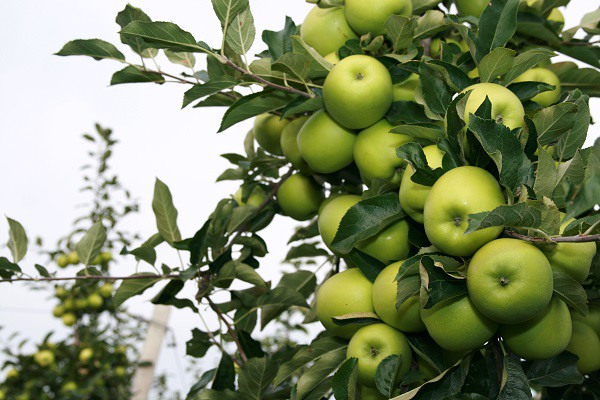
They are also getting a better grasp of cultivation methods and are thus starting to bring valuable fruit to market. Also, those countries have the advantage of cheaper production. Not as many club varieties are currently grown in those countries. But the other varieties are entering the Western European market in increasing numbers. "Those countries are making huge leaps in their fruit’s quality. They also have better storage facilities. But I think the main competition from those countries is still for the commodities and less for the club concepts."
Tastings
To keep on top of trends, EFC keeps in direct contact with retailers. They also want to know exactly what consumers and, thus, retailers want. And, of course, they want to agree on programs. "We work with brand promoters. They introduce our products to retailers. They make the annual program deals and define campaigns. For example, we arrange tastings in Germany with REWE or EDEKA. We, for instance, have a Migo food truck that we park at various retailers. That produces good results. Once the full program has been discussed with stores, our license partners, like Fruitmasters or BelOrta, contact the supermarket. They organize the actual sales."
Year-round supply of local and overseas products
EFC offers its products year-round. In the fall, winter, and spring, the fruit comes from European orchards. In the summer, the apples and pears are sourced from partners overseas. They could, theoretically, work year-round with the European harvest. The fruit’s quality is so good that storage could be stretched even longer. "Last season, there were about 50,000 tons of Kanzi apples in Europe,” says Ilse. “We used that to supply the market until the end of May. After that, we imported between 10,000 and 15,000 tons from the southern hemisphere. So, the main focus is local, European production. We’d very much like to grow the Kanzi volume. Last season we definitely had too little product to serve the market properly. There are undoubtedly still many opportunities for us in the market."
Kanzi, Greenstar and Migo. Will they have company in the next decade? "In my world, ten years is tomorrow. Consider pears, for example. If you want to start something new, it takes between five and seven years before you see the first fruit. Looking at our club varieties in the next decade, I think five is a nice number. But EFC might expand the playing field and not limit ourselves to apples and pears. We follow the developments in soft fruit, too," Ilse concludes. That has certainly piqued our curiosity.

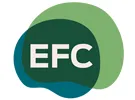 EFC
EFC